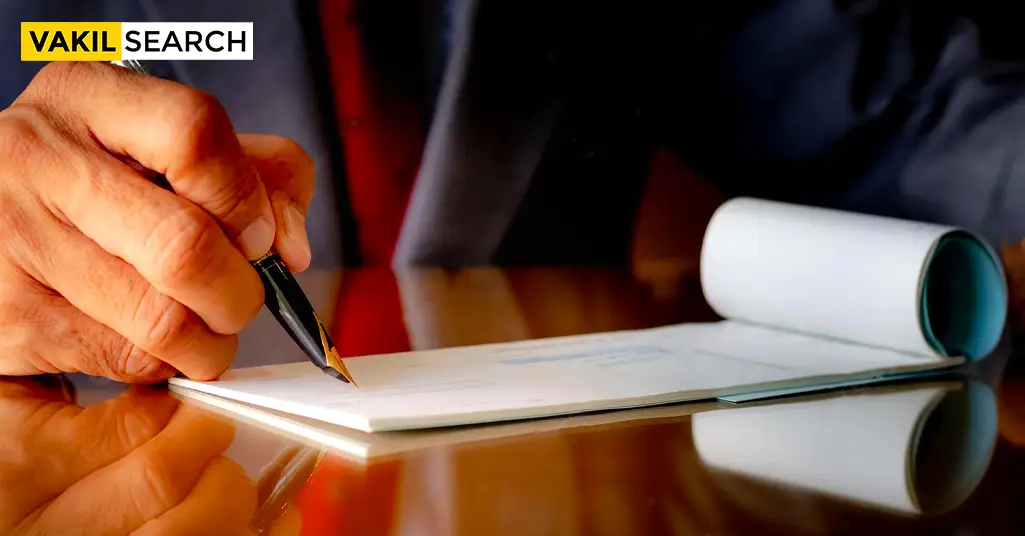A cheque is the most preferred medium of transfer of money from one account to another. When the bank fails to pass a cheque due to specific reasons it results in the dishonoring of the cheque. At this juncture, the recipient will have to investigate the available legal remedies to procure the amount.
Bouncing of a cheque is not merely a financial hiccup; it triggers a chain of legal implications that both parties must navigate. In this comprehensive guide, we delve into the intricacies of Legal Action for Cheque Bounce, examining the consequences for both the drawer and the payee.
Table of Contents
ToggleUnderstanding the Bounced Cheque Phenomenon
A bounced cheque, also known as a dishonored cheque, occurs when the bank refuses to honor the payment due to insufficient funds, account closure, or other reasons. It’s a serious financial infraction that can lead to severe legal consequences.
Consequences for the Drawer (Issuer)
- Criminal Offense: Bouncing a cheque is a criminal offense under Section 138 of the Negotiable Instruments Act, 1881, in India. The drawer can face imprisonment for a term that may extend to two years or a monetary penalty, or both.
- Legal Notice: Upon receiving information about the bounced cheque, the payee can send a legal notice to the drawer within 30 days, demanding the due amount. The drawer has 15 days to settle the payment from the receipt of the notice.
- Court Proceedings: If the drawer fails to comply with the legal notice, the payee can initiate court proceedings. The legal battle can result in a criminal case leading to imprisonment or a monetary penalty.
Consequences for the Payee (Recipient)
- Legal Recourse: The payee has the right to seek legal recourse against the drawer. Initiating legal proceedings can include filing a complaint under Section 138 of the Negotiable Instruments Act.
- Compensation: In addition to the due amount, the payee can claim compensation, which can be up to twice the amount of the bounced cheque.
- Civil Suit: Apart from the criminal case, the payee can also file a civil suit for the recovery of the cheque bounce case amount and additional damages.
Navigating Bounced Cheque Legal Action
1. Issuing a Legal Notice
Upon the cheque bouncing, the payee or their legal representative issues a legal notice to the drawer, informing them about the dishonor and demanding payment within 15 days.
2. 15-Day Window for Payment
The drawer, upon receiving the legal notice, has 15 days to settle the due amount. If the payment is made within this window, legal action may be averted.
3. Filing a Complaint
If the drawer fails to make the payment within the stipulated time, the payee can file a formal complaint under Section 138 of the Negotiable Instruments Act.
4. Criminal Proceedings
The court may initiate criminal proceedings against the drawer, leading to imprisonment or a monetary penalty, or both.
5. Compounding of Offense
In certain cases, parties may opt for a compromise, and the payee may agree to compound the offense, withdrawing the legal proceedings upon receiving the due amount.
Preventive Measures for the Future
- Maintaining Sufficient Funds: Drawers must ensure that their account holds sufficient funds to cover issued cheques, avoiding unintentional dishonor.
- Regularly Updating Account Information: Regularly updating bank account information, including contact details, can ensure timely communication in case of any issues.
- Using Electronic Modes of Payment: Embracing electronic payment methods, such as online transfers, can mitigate the risks associated with physical cheques.
- Clear Communication: Open and clear communication between the drawer and payee can help address financial challenges, reducing the likelihood of legal action.
Conclusion
In conclusion, the Legal Action for Cheque Bounce is a rigorous process governed by the Negotiable Instruments Act. Understanding the consequences for both the drawer and payee is crucial for individuals and businesses alike. While legal actions can be arduous, preventive measures and clear communication can contribute to avoiding such situations. In the financial realm, knowledge is power, and this guide equips you with the insights needed to navigate the legal waters surrounding bounced cheques.



